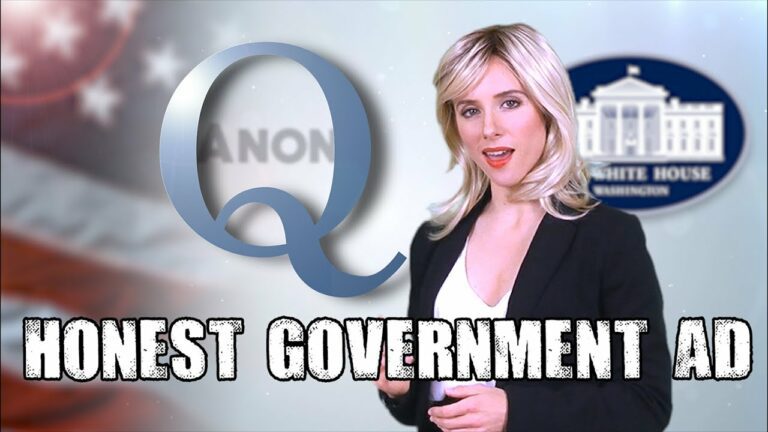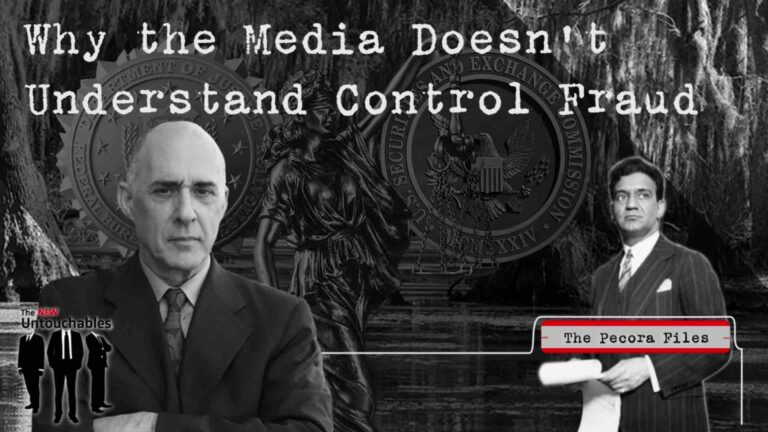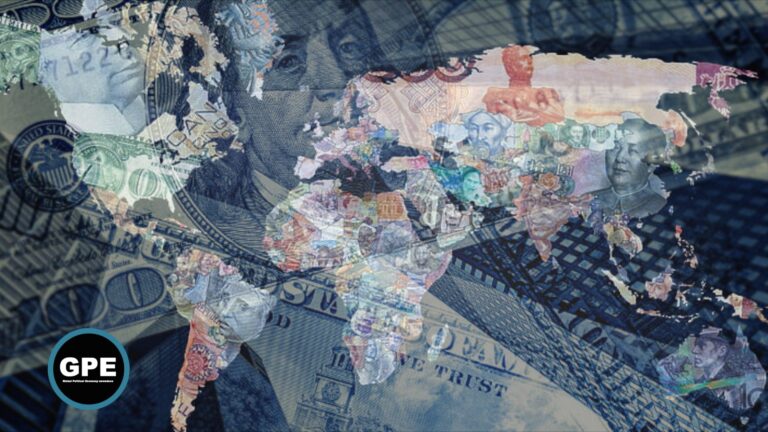Banking and finance are essential to a modern economy, but they don’t have to be privately owned to do it. The Federal Reserve must be transformed to create a system of publicly-owned banks. Gerald Epstein joins Paul Jay on theAnalysis.news podcast.
Transcript
Paul Jay
Hi, I’m Paul Jay and welcome to theAnalysis.news podcast. Please don’t forget we have a matching grant campaign going on now. A member has put up ten thousand dollars, and for every dollar you donate now, he’ll match it up to 10K. And if you create a new monthly subscription or increase an existing monthly subscription, he’ll multiply that by twelve and match that. So, you could click the donate button now or later and be right back.
In an article that appeared in the journal Catalyst, Gerald Epstein and Esra Nur Uğurlu wrote during the global financial crisis of 2007 through 2009, Lloyd Blankfein, then CEO of Goldman Sachs, famously said that it was unfair that people were so mad at him and other bankers for crashing the economy because contrary to common belief, they were “doing God’s work.” [“Are Bankers Essential Workers?” Catalyst 4:2, Summer 2020.]
God’s work? Maybe so, but they were certainly not doing work for the economy, the taxpayers, or the people. Rather, it turns out we were all working for them. However preposterous Blankfein claim was, he went on to argue something that is contained in almost every money and banking textbook and which is constantly repeated by economists, politicians and bankers: “We’re very important. We bankers help companies grow by helping them to raise capital and companies that grow create wealth. This, in turn, allows people to have jobs that create more growth and more wealth. We have a social purpose.” That’s the way the bankers talk. In other words, bankers are essential workers. Well, that’s the article that we’re going to talk to one of the authors about today.
Now joining us to tell us whether bankers are essential workers is Gerald Epstein. He’s the co-director of the PERI Institute. He’s also a professor of economics. He received his PhD in economics from Princeton, and he has published widely on a variety of progressive economic policy issues, especially in the areas of central banking and international finance. He’s the author most recently of The Political Economy of Central Banking: Contested Control and the Power of Finance.
Thanks for joining us, Gerry.
Gerald Epstein
Thanks a lot for having me, Paul.
Paul Jay
Talk a bit about this article, because what you get to pretty quickly is that what’s essential is not the bankers. What’s essential is the banking, meaning we do need banks, but they don’t need to be private. Talk a bit about this idea that it’s banks that actually are the creators of wealth, which is their big argument. And then we’ll get into the public banking part of it.
Gerald Epstein
Right. Well, banks are essential for many activities, especially for activities under capitalism, but also in social-democratic countries as well. And the thing is, it’s not that banks by themselves create wealth. Banks can only create wealth if they serve the economy and they serve society. When banks are just serving themselves, we argue that they don’t create wealth, they extract wealth from the rest of society. And the problem that we’ve had in the last 30 or 40 years under this, what I call “roaring banking” or neoliberal banking system in the United States, the United Kingdom and elsewhere, is that it’s been extracting wealth from society, enriching the bankers, and impoverishing the rest of society. So, yes, real banking is necessary if it’s serving the economy. But in order to get there, we really have to fundamentally restructure our whole financial system.
Paul Jay
Maybe before we unpack this further, we should step back and discuss one of the basic mythologies not just of the bankers but of the wealthy in general who are supposedly the job-creators. Except the thing about wealth they don’t want to talk about is where that wealth came from in the first place. Like, who actually creates the wealth?
Gerald Epstein
First of all, Marx talked about primitive accumulation, that is, many of the conditions were for capitalism were expropriated from previous groups and people who had the assets — land, agriculture, etc. — and the workers who were working for themselves or in groups. Initially, according to Marx and I think in many places this is true, there was expropriation of the initial conditions of wealth. But then, yes, capital investment, machinery, workers, natural resources, all of that when combined and can produce wealth.
The question is, how is that wealth distributed? Is it used in such a way to produce more real wealth for society or is it distributed in such a way to build wealth, income, and power just for the few? And that’s what we’ve, of course, been seeing recently. Now, Joseph Schumpeter, Marx, Keynes, and others understood that to produce wealth you often need financing because wealth only produces in the future but you need to make the investment now. And that’s where banking comes in. So, there has to be a source of financing for many types of long-term investments, and that’s increasingly true as the scale of production gets larger. We’re talking about infrastructure, technology. There has to be some financing for this. Some of it can be financed from accumulated wealth in the businesses themselves or in the government. Large and long-term investment needs some kind of financing. This can come from banks. It can come from the central bank. But there has to be financing. That’s where the financial system comes in; that’s why we need finance. But it has to be oriented to doing investment for production that really benefits people and society.
Paul Jay
So, we know that finance as it is, which is predominantly privately owned, pursues maximum return on invested capital. If there is any social good, it’s kind of secondary to the mission. And I guess there is some social good because some financing does get into the [real] economy. But it’s not the priority. And we can see all the distortions that take place from subprime mortgages to all kinds of speculative investment. So, while the economy needs financing, it doesn’t necessarily have to be private. And that’s part of what you get into in the article.
Gerald Epstein
That’s right. But interestingly, private financing needs the government. It needs the state. What are the major points of the article? I didn’t invent them; there are many economists and others who have made this point (Mercia Bargaron [phon.]; Christine Desan at Harvard). Banks need the state to underwrite the banking system. I mean, we’ve seen that so clearly with the great financial crisis when the banking system was teetering on collapse and the government in our country and elsewhere bailed out the banking system.
Once again with the coronavirus, same thing. In March, there was a threatened collapse of the whole global financial system. The central banks bailed them out. But even before this, from the very beginning, governments have provided a monopoly of issue of currency. They’ve given subsidies. They’ve acted as the lender of last resort for banks. So, banks need society. Society and the governments in particular have been subsidizing and providing the context for banks for centuries.
So, the question is, what does society get in return for this massive investment in finance? If finance is actually providing the goods and investment that society needs, then people — the working-class, farmers, the government — are getting something on their return. But if the banks are just exploiting this and extracting wealth from society, then in fact, the return to society is getting is negative. And that’s what we see with the last 30 or 40 years of private banking.
Paul Jay
One thing they would argue, I think, is that they provide an expertise that the state doesn’t have in terms of global capital flows. This kind of globalization requires an enormous amount of capital to go from country to country and even domestically. This expertise is only in the private sector. Is there any validity to the argument?
Gerald Epstein
There is a lot of expertise, but unfortunately, much of the expertise in the private sector is used to make trading profit, short-term returns on speculation, gaming the system, avoiding taxes, and generally using the global financial system as a massive casino. So, there’s definitely expertise being used but it’s not the kind of expertise we necessarily need to, for example, make the investments needed to transition from fossil fuels to green energy or build up our housing stock.
That kind of expertise exists, sure, but it’s easy for the state to get if they pay decent salaries. But it’s really expertise directed toward accumulating finance for the real economy. And there’s plenty of that around. It’s pretty easy to reproduce through business schools and other kinds of experiences. I think that the answer that the banks give is not true in terms of the kind of expertise we really need.
The argument that we make in the paper is that there has been this revival of interest in public banking. That is, banking that serves society and which is either owned by the state or has public, societal missions, that’s regulated and which doesn’t have profit-making as its primary goal. And in fact, there’s been a real growth of these kinds of institutions around the world. There’s been an active movement in the United States to try to create more public banking and publicly oriented banking over the last 40 years.
Paul Jay
So, part of your thesis, if I understand correctly, is that the mechanism for creating public banks exists. And we’re talking about, I think, more than postal banking, which is getting a lot of talk and which is a good idea. Some retail banking could go through the post office, which is owned by a public-sector company. But we’re talking about something bigger, something that could compete with or play the role of the too-big-to-fail banks. The mechanism for doing that exists, and that’s the Fed.
Gerald Epstein
Yes, the Fed is one mechanism, but there are other mechanisms as well. But yes, we’re talking about banks that can finance small business, that can finance public housing, they can finance investments in green energy. And these are banks that can be at the state and local level. These are banks that can be at the regional level.
But the thing is, while there’s been a real growth in these kinds of financial institutions around the world, there’s been almost no growth in the United States. The question is, why? And the answer is, of course, the opposition of the private banks that have put up all kinds of political opposition against the creation of public banks. There have been attempts to create public banks in Massachusetts and in other states around the country. There’s almost always been significant opposition, not just from the private banks, but from the representatives of the private banks, namely the Federal Reserve and other similar kinds of institutions.
What we’re arguing is that private banks are underwritten by the state, they’re underwritten by the Federal Reserve, they’re underwritten by a host of other subsidies and financial institutions. If the Federal Reserve and these other institutions gave a fraction of the kinds of financial support and subsidies for public banking that they give to private banking, then then public banks at these various levels could be on a much more even playing field and, as they have in other parts of the world, they could really thrive.
In fact, this argument has been recognized. There are groups in California that have been able to get some laws passed to create municipal and even state-level banks there. Rashida Tlaib and AOC have put together a public banking bill that would make the Federal Reserve provide facilities for public banks, allowing public banks to become members of the Federal Reserve so they can have access to the support that the commercial banks have with the Federal Reserve. The bill would have the Federal Reserve give grants for public banking. So, there is movement to try to get this broad infrastructure support from the government that we really need to get a true public banking system or what I call, banks without bankers, set up here in the United States.
Paul Jay
We’ve talked about this before, but it seems to me one of the critical things is that there needs to be serious reform of the Fed. The Fed shouldn’t be run by bankers, primarily. Right now, we’ve got the Biden administration and there’s no reason to expect it will do this. But at any rate.
I know the head of the Fed is an appointment by the president. But the twelve different regional Fed banks are mostly controlled by the member banks, and those are all of the big banks. Does it take an act of Congress to reform the Fed or is it something the president can do?
Gerald Epstein
No, it would take an act of Congress. But you’re right, the Fed has to be reformed. We need to have more public representation on the boards of the regional Feds. There needs to be less or no banker representation on these boards. Perhaps the key members of the board should be elected at the state or regional level. So, yeah, we need to get bankers off of these boards and put in workers, citizens, and community representatives.
But Biden can affect who is on the Board of Governors of the Federal Reserve and who is the chair of the Federal Reserve. I think he really needs to appoint a new chair. Jerome Powell, the current chair of the Federal Reserve, I think has really disqualified himself by undertaking policies since the coronavirus hit that just bulked up the wealth of the rich by increasing asset prices while doing very little for states, municipalities, and small business.
Progressives pushed the Federal Reserve and the Treasury Department under Trump to create new facilities, to give subsidized loans for state and local government, and for small businesses. But the way the Federal Reserve structured these facilities made it too expensive, too cumbersome, too difficult for many of these states, municipalities, and small businesses to borrow. And now Steve Mnuchin, the Treasury secretary, says, “OK, there’s billions of dollars that the Fed didn’t spend on these because the terms were so onerous so we’re taking the money away come January 1st.” And the Fed is howling, “Oh, you can’t do that. We need the money.” But in fact, they were just sitting on it. They didn’t spend it. So, I think Biden has to appoint a new chair who’s much more activist, much less beholden to the bankers.
I personally would recommend my colleague Bob Pollin to be chair of the Federal Reserve. He’s got all the credentials. He’s got knowledge of low-wage labor markets. He’s got knowledge of the green transition to a fossil-free energy system. He’s got knowledge of issues facing the medical insurance markets, and so forth. So, I think he’s the kind of person who would be an ideal chair of the Federal Reserve. If not Pollin, then there are other candidates out there, like Jamie Galbraith, who was an economist at the Joint Economic Committee and helped develop the Humphrey-Hawkins full-employment bill that governs the Fed. If not him, then there’s Sandy Darity [William A. Darity Jr.], a brilliant economist in North Carolina. There are many progressives who Biden could appoint as chairs of the Fed who would have a much more expansive view of what the Federal Reserve should be doing. And that’s what we need.
Paul Jay
Yeah. [Laughing.] But if Biden appointed any of the gentlemen you just mentioned, he wouldn’t be Biden and it wouldn’t be the corporate Democratic Party. But yeah, if they were serious, that’s what they would do.
Gerald Epstein
Well, then those of us on the left have to push Biden not to reappoint Jerome Powell and to appoint somebody like the three people I just named.
Paul Jay
There’s a lot of talk that there’s a possibility of Yellen being at the Treasury Department. What do you think of that?
Gerald Epstein
Well, it’s not a bad choice, actually. She did a decent job at the Fed, though she was too worried about maintaining the anti-inflation credentials of the Fed and kept worrying about raising interest rates. But she was also very focused on issues of economic inequality and on low-wage labor markets. And she’s very committed, I think, to issues of equity and trying to raise the standard of living of low-wage workers. I think that among the choices they’re talking about there’s a lot to be said for her.
Elizabeth Warren, who I think would be great, presents all kinds of political problems. What would happen to that Senate seat in Massachusetts, for example? It’s entirely unclear. The Democrats can’t afford to risk a Senate seat. I’m sure there’d be a tough fight in the Senate over her. I think Janet Yellen is somebody who could do a good job.
Paul Jay
Well, it’s someone that wouldn’t create a total war with the financial sector. And Warren probably would because of her advocacy of the wealth tax. I’m sure Biden wouldn’t support such a tax.
Let’s go back to the public banking. How do you scale it up so that it could take on the role that the big banks have in managing and facilitating the kind of capital flows that modern capitalism needs? Are there any examples in other countries of the kind of scale that’s necessary?
Gerald Epstein
For example, the state bank in Brazil, the BNDES, is a massive development bank. It is a major player in the Brazilian financial markets. So, for example, in the United States, a lot of people recommended a green bank, a massive green bank, that would facilitate investment in green and alternative energy. That would have to be at scale. That would have to be large.
Paul Jay
Does that require an act of Congress?
Gerald Epstein
I think that would require an act of Congress. So, if we’re talking about political feasibility, that’s another issue. But the point you’re making about the Fed is right. The Fed or a similar institution has to play an important role in underwriting, in providing liquidity facilities and possibly guarantees to these kinds of institutions. Some people propose a national investment bank that would mobilize private and public savings in order to invest in infrastructure. So, that’s another idea that’s been floated around.
All of these would require support by the Federal Reserve or by similar kinds of institutions. During the Great Depression, a whole network of farm banks was set up. It was modeled on the Federal Reserve System, and they still exist to this day. There was the Reconstruction Finance Corporation that was created. At that time, there was a big fight over the Reconstruction Finance Corporation. Some people wanted it to be in the Fed and the Fed to be turned into a massive public bank. So that’s another way we could go: have the Federal Reserve itself become a massive public bank.
But I think some of these activities were discussing the Federal Reserve could start undertaking without an act of Congress. They could just start investing more in supporting industry and supporting infrastructure. It wouldn’t even take an act of Congress for the Federal Reserve to start undertaking a broader range of activities. And that’s why I was arguing for somebody like Bob Pollin to be chair who would push that kind of thing. The Fed could do a lot without an act of Congress.
Paul Jay
It can loan money to state-owned public banks. There is a state-owned public bank, for example, in North Dakota. If California set up a big state-owned bank to fund green projects in California, the Fed could loan money to that without an act of Congress.
Gerald Epstein
That’s right. That’s right, absolutely. So, short of an act of Congress, the Fed could be doing a lot more of that kind of thing in conjunction with creation of public banks and other institutions.
Paul Jay
And they may have to. If the Republicans control Congress, as meek and mild as the Biden climate agenda is… Of course, it’s more than a Trump climate agenda, which is a zero —
Gerald Epstein
It’s negative.
Paul Jay
But if they want to get serious — yeah, negative. Yeah, right. Not zero; it’s negative. Yeah.
If Biden actually wants to do something on climate — and I believe they want to do something, although that something so far is based on carbon capture. But if the Senate is controlled by the Republicans, then controlling state initiatives may be the main way they could do this.
Gerald Epstein
That’s right. And the Federal Reserve could play a significant role in helping to underwrite those activities. The danger, of course, is if the Congress is in Republican hands, they could rein in the Fed because the Federal Reserve is a creature of Congress.
Paul Jay
But as long as the House is still Democrat, the Senate couldn’t do that by itself.
Gerald Epstein
Not by itself. So, yeah, there’s a lot more the Fed can and should do.
Paul Jay
You were mentioning earlier that there’s there is a campaign. There are a lot of people organizing to create these publicly owned banks with a public-interest agenda. Having them at a state level in certain states is a heck of a lot more achievable. What’s happening in terms of the activism on that?
Gerald Epstein
There’s a network of public banking advocate groups that are getting together and sharing ideas about how to do this. It’s most advanced in California but there are groups in Massachusetts, Washington state, and in other states. There are a lot of really great activists out there working on this. But they also realize they need a more national plan, a national vision. They came together, along with others, to try to help AOC and Rashida Tlaib develop this public banking bill, which would really, I think, be a game changer if something like that were passed. It would create this national infrastructure and bring the Federal Reserve into it to support this whole network. So, there’s a lot of important work being done at the state and local level. But they’re getting together in a national network and they’ve made some strides in terms of linking up with progressive politicians like AOC and Rashida Tlaib and others to try to make more happen on public banking.
Paul Jay
All right. Great. Thanks very much for joining us, Gerry.
Gerald Epstein
Thank you very much.
Paul Jay
And thank you for joining us on theAnalysis.News. Please don’t forget the donate button over at the Web page. If you’re listening on one of the podcast platforms or if you’re watching on YouTube, come on over to theAnalysis.News and you’ll see there there’s some options. One, if you donate, the matching grant will match your donation. If you sign up for a monthly subscription, that gets matched times twelve. Same thing if you increase your monthly donation; that gets matched. So, if you haven’t donated or if you want to donate again, go on over.
Thanks for joining us on theAnalysis.News.







Since 1913, there has been no institution, public or private (like the Fed) as destructive, not only to our country but to the entire world than the US Federal Reserve Bank. It has fostered the great world war, the Cold War, and all the imperial wars of the US since 1945. It has made worse the business cycle. Chairpersons, such as Alan Greenspan, have looked away from fraudulent activity. His successors have mired our country in inextricable debt and destroyed the value of our currency. The Fed is the arch culprit, but it was abetted by our congresses and administrations, who serve the same masters of finance. They all deserve the guillotine for their treason, war crimes, and crimes against humanity and the Earth itself !